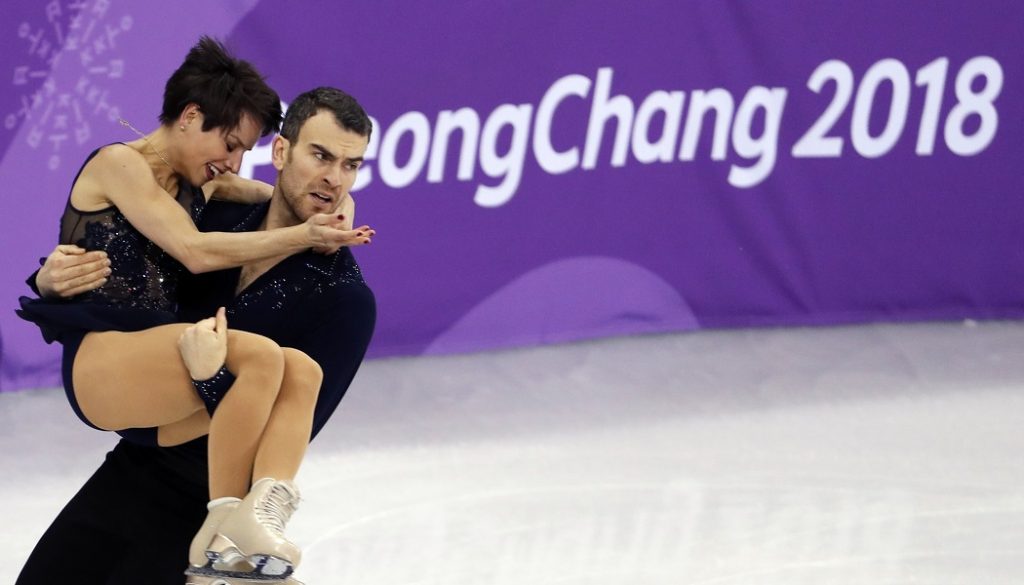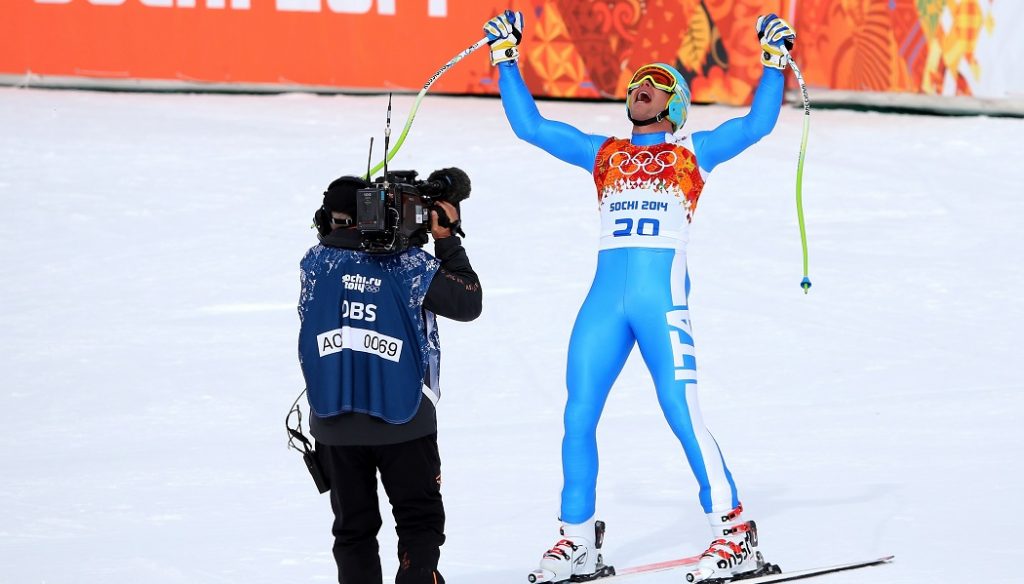Olympic Athletes Poised to Save Beijing’s Super Power Games
February 15, 2022
Olympic Games advisor Michael Pirrie outlines the key challenges facing Beijing’s organisers as the Games enters the final days of its epic ten year journey.
INTRODUCTION
Snow results from weather patterns that produce minute ice crystals and larger snowflakes that can transform the surrounding world, with the potential also for widespread disruption.
While there has been little natural snow until this past weekend, a cold climate of political suspicion and suspense have settled over the Beijing Winter Games.
This has been one of the world’s most complex and conflicted sporting events. China has challenged athletes and audiences like never before. Games athletes are traversing some of the most challenging conditions ever confronted in world sport.
With international officials warning of personal risks from political criticism, fears over cyber security and burner phones as a mandatory precaution, Beijing carries overtones of danger inherent in figure skating soundtracks such as “Oblivion,” and “Secret Spies” from the previous Pyeongchang Winter Games, staged in the shadows of North Korea’s nuclear missile bunkers.
“A decision to allow Russian teenage skating sensation Kamila Valieva to continue competing despite a positive drugs test will help to define the Games.”
The Beijing Games has unfolded in an atmosphere of growing global disorder, a countdown to possible war in Europe and a new pandemic virus.
High power political alliances and agendas have framed Beijing as much as the “The Rock,” “Ice River,” giant industrial cooling towers, steep mountain slopes, and space age indoor venues have defined the time and place of this Olympic expedition to the Chinese capital.
This has been the Super Power Games, dominated by the politics and partnerships of permanent UN Security Council members – China and Russia and United States and United Kingdom.
Beijing has also produced super powered sport and performances of extraordinary athletic artistry and bravery never seen before, often obscured by the political blizzards that have closed in on the Games.

As Beijing continues into the second and final week of competition the most immediate challenge may not be from recent snowstorms, high winds and reduced visibility on the slopes.
The major threat may still be the continuing presence of Russian troops on the Ukraine border pushing Europe – home to the families of thousands of athletes competing in Beijing – to the edge of possible war. While maintaining its military war footing, Russia also continues to wage war on Olympic athletes.
A decision to allow Russian teenage skating sensation Kamila Valieva to continue competing despite a positive drugs test will help to define the Games.
The ruling by the Court of Arbitration for Sport (CAS) has sparked fury amongst cold war political enemies and allies, and levelled criticism at the world anti doping system as it applies to Russia and its repeated violations and disregard for clean athletes.
While the CAS verdict correctly highlights the importance of fairness and protection for the 15-year-old minor, allowing her to compete again has raised difficult questions about fairness for compliant athletes. The complexity of the situation surrounding Valieva, who has not failed a drugs test since arriving in Beijing, has led to renewed international concern about the integrity of elite sport.
The Valieva case has inevitably placed Russia’s state sanctioned doping programme back in the spotlight, with growing speculation about the teen skating star’s entourage and possible targeting of junior athletes in covert doping operations.
This will now be investigated in an effort to find out who put the young sports superstar into the crisis she finds herself. As merely a fifteen year-old girl this will likely turn back to the coaches who are most likely to be responsible for this situation
“The complexity of the situation surrounding Valieva, who has not failed a drugs test since arriving in Beijing, has led to renewed international concern about the integrity of elite sport.”
While many hundreds of thousands of Covid tests have been conducted in Beijing, it was the results from a single test of a very different kind before the Games that will leave an inconvenient Game legacy.
Beijing’s super power political sports nexus reached new heights when Russian leader Vladimir Putin and China’s president Xi released a joint statement opposing western influence in their regions as athletes from nations around the world prepared to march in the opening ceremony.
Despite this extreme political environment, the Beijing Games may still be a significant achievement for organisers and IOC
The Games is producing one of the most electrifying, compelling and confronting Olympic spectacles ever staged on snow and ice. Maybe the most talented line up of winter athletes ever assembled has already produced multiple world and Olympic records, while other legends thrilled crowds by merely competing.
Like Shaun White, the quarterback of winter sport with multiple won gold medals, taking snowboarding to new heights like a modern day arctic explorer, who received a rousing standing ovation that could be heard at the top of the course without even making it to his permanent position the podium.
Athletes soared above geopolitical divides, blessing themselves before launching so high on snowboards or skis that a pilot’s license, oxygen mask, parachute and air traffic controllers appeared necessary to navigate a safe landing.
The humanity of sport also cut through the politics.
“I would never have expected, in this moment, severely underperforming in an Olympics… I would never have felt that humans could be so kind,” said devastated US world skiing champion Mikaela Shiffrin after her shock elimination from her two best events. “I never would have expected that.”
CONCLUSION
The Beijing Games appear to have unfolded in two different parallel worlds – on the pages and screens of the world’s media, critical of the management style, rules and restrictions imposed by organisers; and in the venues, mountains, streets and homes of a host city and country fiercely proud of the Games and success of its Olympic team.
Ultimately it is the experience of the athletes that will determine the success of the Games. All Games have issues that need to be dealt with no matter how much planning has been done.
Organisers appear to have dealt with complaints at the start of the Games centring on the isolation of Covid positive athletes, making conditions more comfortable and less severe.
The reporting of no new Covid infections for the first time yesterday in the closed loop system heralds a major milestone that will be critical to the safety and security of essential services for athletes and success of the Games in the days ahead.
***Michael Pirrie is an Olympic Games advisor and international communications consultant and commentator on major events who was executive advisor to the chair of the London 2012 Olympic games, Seb Coe.


